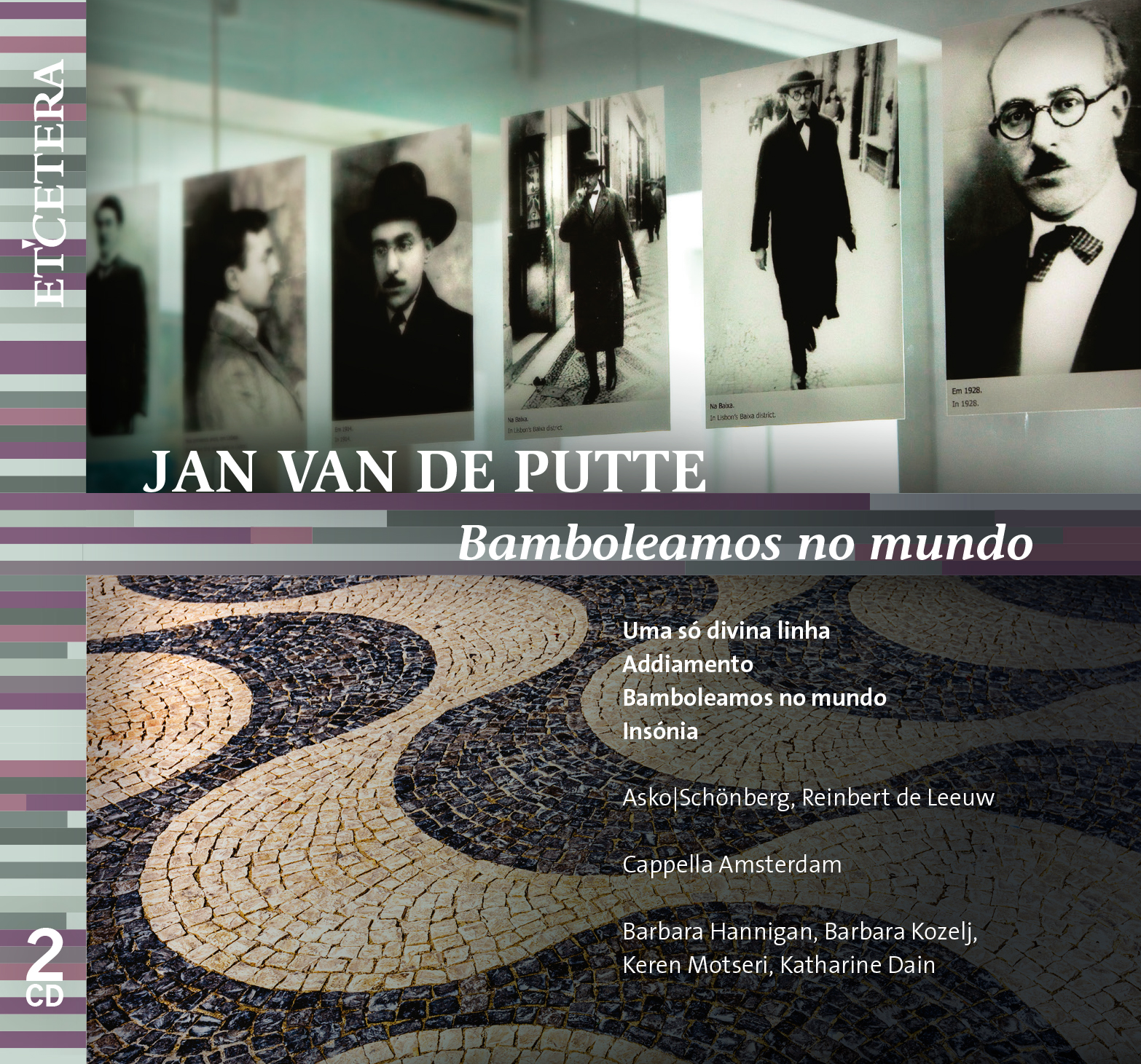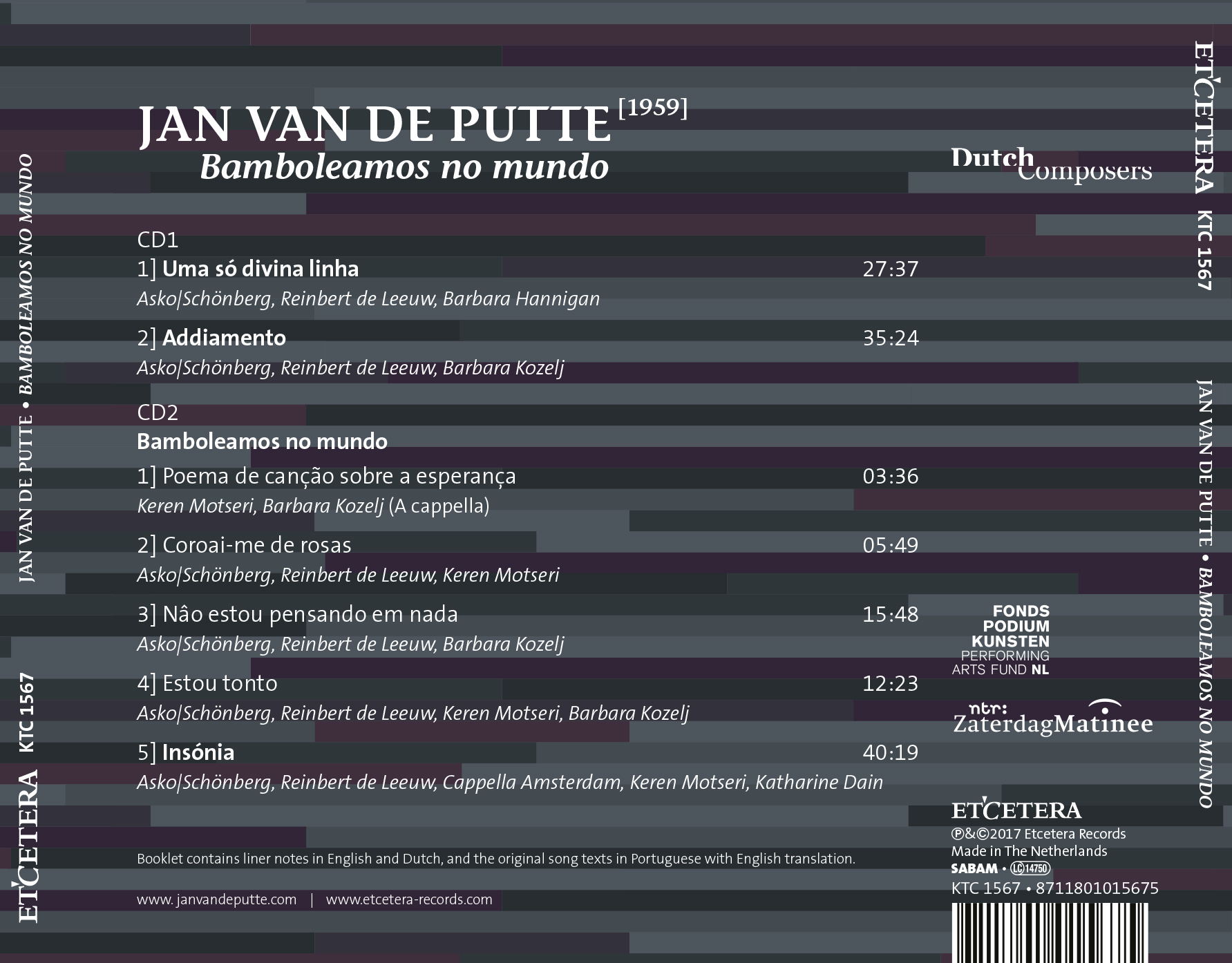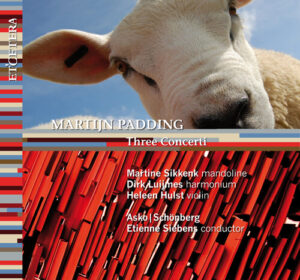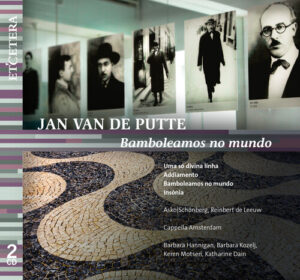1. Uma Só Divina Linha
Composer: Jan van de Putte
Artist(s): ASKO | Schönberg, Barbara Hannigan
2. Addiamento
Composer: Jan van de Putte
Artist(s): ASKO | Schönberg, Barbara Kozelj
1. Bamboleamos No Mundo: Poema de Canção Sobre a Esperança
Composer: Jan van de Putte
Artist(s): Barbara Kozelj, Keren Motseri
2. Bamboleamos No Mundo: Coroai-Me de Rosas
Composer: Jan van de Putte
Artist(s): ASKO | Schönberg, Keren Motseri
3. Bamboleamos No Mundo: Nâo Estou Pensando Em Nada
Composer: Jan van de Putte
Artist(s): ASKO | Schönberg, Barbara Kozelj
4. Bamboleamos No Mundo: Estou Tonto
Composer: Jan van de Putte
Artist(s): ASKO | Schönberg, Barbara Kozelj, Keren Motseri
5. Insónia
Composer: Jan van de Putte
Artist(s): ASKO | Schönberg, Keren Motseri, Cappella Amsterdam, Katharine Dain






Reviews
There are no reviews yet.